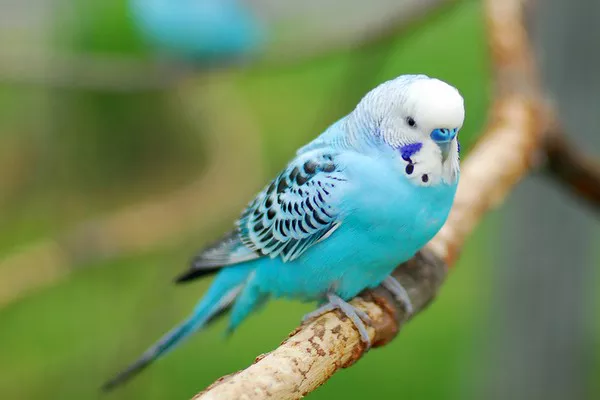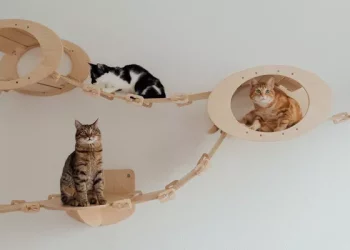American Shorthair cats are known for their independent and calm demeanor, making them popular pets in many households. These cats, with their plush coats and expressive eyes, are often adored for their sociable nature and easy-going temperament. However, one of the most frequently asked questions by American Shorthair owners is about their sleeping habits. Cats, in general, are known to sleep a lot, but how much do American Shorthairs sleep compared to other breeds? In this article, we will delve into the sleeping patterns of the American Shorthair, factors influencing their sleep needs, and tips for understanding and managing your cat’s sleep behavior.
Understanding the Sleep Patterns of Cats
Before we dive into the specifics of how much an American Shorthair sleeps, it’s important to understand general feline sleep behavior. Cats are known for being polyphasic sleepers, which means they sleep in several phases throughout the day and night. Unlike humans, who generally follow a circadian rhythm of wakefulness during the day and sleep during the night, cats are crepuscular creatures. This means they are most active during the twilight hours of dawn and dusk.
Adult cats, whether they are American Shorthairs or other breeds, can sleep anywhere from 12 to 16 hours a day. This sleep time includes both deep sleep (when they are truly resting and rejuvenating) and lighter sleep (when they might be half-aware of their surroundings). It’s also worth noting that kittens, senior cats, and cats that are ill may sleep even more than the typical 12–16 hours.
American Shorthairs, like many other domestic cats, are no exception to this sleep pattern. Their natural instincts and evolutionary history as hunters contribute to their need for long sleep periods. Cats are predators by nature, and despite being domesticated, they still retain much of the behavior of their wild ancestors. In the wild, cats need to conserve energy to stalk, chase, and hunt prey, and this instinct remains with them today.
How Much Do American Shorthair Cats Sleep?
On average, an American Shorthair will sleep between 12 to 16 hours a day, just like most other domestic cats. However, this number can vary based on a variety of factors, including the cat’s age, activity level, health, and even its personality. Some American Shorthairs may lean toward the upper end of this range, while others may sleep less, especially if they are very active or playful.
Factors Affecting Sleep in American Shorthairs
Several factors influence how much sleep an American Shorthair needs. Let’s explore the main ones.
1. Age
Age is a significant factor when it comes to determining how much an American Shorthair sleeps. Just like humans, cats go through different stages in their life, and their sleep requirements change accordingly.
Kittens: Young kittens, especially those under six months of age, can sleep as much as 18 to 20 hours a day. They require more sleep for growth and development. During their awake hours, they are often playing, exploring, and learning about the world around them.
Adult Cats: The typical American Shorthair adult will sleep around 12 to 16 hours per day, depending on their level of activity. Adult cats are often less energetic than kittens but can still enjoy bursts of playtime and exploration.
Senior Cats: As American Shorthairs age, they may sleep even more than their younger counterparts. Senior cats may sleep up to 18 hours a day or more. This increased sleep is often due to natural aging processes, changes in metabolism, and a decrease in activity levels.
2. Activity Level
Activity level plays a crucial role in determining how much sleep an American Shorthair gets. While American Shorthairs are generally known for being calm and laid-back, they can also be playful and energetic at times, especially when they are young or have a stimulating environment. Cats that are more active during the day will likely need more sleep at night to recover.
Playful American Shorthairs: If your American Shorthair is very active and enjoys playtime, you may notice that they sleep more at night or take longer naps during the day. Cats that engage in hunting-like behavior (chasing toys, climbing, etc.) will need extra rest to recharge their energy for the next adventure.
Calmer American Shorthairs: Some American Shorthairs are naturally more relaxed and don’t engage in as much intense play. These cats may be content to lie around during the day and nap for most of the hours. They may still have bursts of energy but will spend more time resting.
3. Health Status
A healthy cat typically sleeps between 12 and 16 hours a day, but health issues can impact the amount of rest your American Shorthair gets. Illnesses or conditions like arthritis, obesity, or hyperthyroidism can influence sleep patterns.
Sick Cats: If your cat is unwell, it may sleep more than usual as the body uses sleep to heal. Conversely, some health problems may cause discomfort, leading to disrupted sleep or restless behavior.
Overweight Cats: Cats that are overweight or obese may sleep more than cats in better shape, as they are less likely to engage in physical activity, leading to an overall more sedentary lifestyle.
Hyperthyroidism: A condition like hyperthyroidism, common in older cats, may result in increased energy levels and restlessness. Such cats may have difficulty settling down to sleep and could exhibit a more erratic sleep schedule.
4. Environmental Factors
The environment plays a significant role in how much sleep an American Shorthair gets. Cats are sensitive to their surroundings, and certain factors can either encourage or disrupt their sleep.
Comfort: A comfortable environment encourages sleep. Cats love cozy, warm spots where they can curl up and nap. If your home is noisy or lacks cozy spaces, your cat might not sleep as soundly.
Distractions: Loud noises, such as construction outside the home, children playing, or other pets, can disrupt your American Shorthair’s sleep schedule. If the cat feels threatened or overstimulated, it may sleep less or become restless.
Light Exposure: Like many animals, cats are sensitive to light. Exposure to bright light during the night or being kept in an area with irregular lighting can interfere with their natural sleep-wake cycle. It’s essential to ensure your cat has a quiet, dark space for uninterrupted rest.
5. Diet and Nutrition
What your American Shorthair eats can also affect their sleeping habits. Cats need a balanced diet to maintain energy levels, and an improper diet can lead to lethargy or hyperactivity. For example, a cat that consumes too much sugar or has an unbalanced diet may experience disruptions in its energy and sleep patterns.
Diet and Sleep Quality: A high-protein diet supports healthy energy levels during waking hours, allowing cats to enjoy restful sleep at night. On the other hand, cats with poor nutrition may feel fatigued, leading them to sleep more.
Feeding Schedule: The timing of your cat’s meals can also influence sleep. If your cat eats late at night or during odd hours, it may have difficulty sleeping or wake up during the night when it should be resting.
6. Personality
Just like humans, cats have unique personalities that can affect their sleep behavior. Some American Shorthairs are more curious, interactive, and playful, while others are more laid-back and introverted. Those with a more laid-back personality may prefer lounging and napping most of the day, while others may have longer stretches of active playtime.
7. Stress and Anxiety
Stress is another important factor to consider. A stressed American Shorthair may exhibit changes in its sleep patterns. Factors that contribute to stress include changes in the household, the introduction of new pets or people, and environmental disruptions.
New Environment: When an American Shorthair is placed in a new environment or experiences changes in its surroundings, it may sleep more or less as it adjusts. It can take time for the cat to feel comfortable and secure enough to return to a normal sleep schedule.
Separation Anxiety: If your cat suffers from separation anxiety when you’re away, it may show signs of restlessness during the night. Some cats with separation anxiety may sleep less due to heightened stress or unease.
8. Sleep Disturbances in Cats
Occasionally, American Shorthairs (and other cats) may experience sleep disturbances. These disturbances can occur for a variety of reasons, from health issues to behavioral problems.
Nighttime Restlessness: Some cats have difficulty sleeping through the night, and they may become active during the late hours, especially if they aren’t getting enough stimulation during the day. It’s important to ensure your cat has plenty of activities and playtime during the day to help them wind down by bedtime.
Sleep Disorders: While rare, some cats can develop sleep disorders, including insomnia or narcolepsy. If you notice that your American Shorthair seems excessively restless or unusually sleepy, it’s a good idea to consult a veterinarian for advice.
Conclusion
American Shorthair cats typically sleep between 12 and 16 hours per day, but factors like age, activity level, health, environment, and stress can influence their sleep habits. As a pet owner, understanding these variables will help you provide the best care for your cat, ensuring they have the right balance of activity, rest, and stimulation. By creating a peaceful environment, maintaining a healthy diet, and offering plenty of playtime, you can help your American Shorthair lead a happy, healthy life with restful, rejuvenating sleep.
Every cat is unique, and observing your American Shorthair’s individual behavior and sleep patterns will give you the best insight into their needs. If you ever feel concerned about changes in their sleep or overall behavior, don’t hesitate to consult with a veterinarian to ensure your cat’s health and well-being are properly managed.
Related Topics:






















